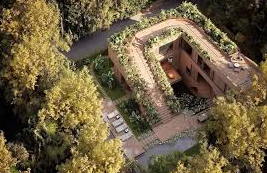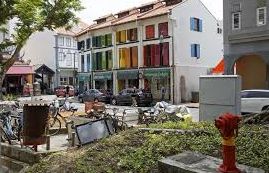Pioneering facility on Bodmin Moor to become focal point for studying rare Atlantic temperate rainforests, with funding efforts underway to support biodiversity and conservation
Plans are under way to establish the first dedicated research station in Europe focused on Atlantic temperate rainforests, with construction set to begin in Cornwall, beside ancient woodland on Bodmin Moor.
The initiative, led by the Thousand Year Trust, seeks to raise funds for the £750,000 facility, which already has planning approval. Once completed, the site will offer resources for both researchers and students to investigate one of Europe’s most overlooked but ecologically rich habitats.
Set on the grounds of Cabilla, a former hill farm now operating as a retreat and rewilding centre, the station will serve as a base for ongoing rainforest restoration and scientific engagement. The land is home to rare fragments of temperate rainforest—an ecosystem characterised by high rainfall, mild temperatures, and a diverse community of moisture-loving flora like lichens, mosses, and ferns.
Merlin Hanbury-Tenison, who founded the Thousand Year Trust and manages Cabilla, hopes the project will address the scientific neglect of this natural environment. “People are deeply familiar with tropical rainforests, but we’ve failed to tell the story of our own native rainforests,” he said. “To protect something, you must understand it—and we’re only beginning that journey now.”
Atlantic temperate rainforest once stretched across much of western Britain and Ireland, though today only fragments remain. The habitat, which also acts as a crucial carbon sink, now covers less than 1% of the planet’s surface.
Public awareness surged after the release of The Lost Rainforests of Britain, a book by campaigner Guy Shrubsole. It prompted the UK government to announce a strategy in 2023 that included £750,000 earmarked for temperate rainforest research—money that has yet to be distributed.
The station will support accommodation, a research lab, kitchen space, and a gathering area for discussions and presentations. Its construction will use locally sourced timber, with support from the Woodland Trust.
In 2024, Cabilla hosted MSc students from six different universities, with six PhD candidates beginning rainforest-related projects. Hanbury-Tenison hopes to double those numbers once the station is built.
Its location is seen as ideal—nestled within the climatic range of Atlantic rainforest, roughly midway between the northern edge in Bergen, Norway, and its southernmost limits in Braga, Portugal.
Alongside the crowdfunding campaign, the Trust is seeking backing from government bodies, philanthropic foundations, and environmental organisations. One of its earliest supporters is Hanbury-Tenison’s father, Robin, a noted explorer and founder of Survival International. To mark his 89th birthday, he plans to row 25 miles along the River Tamar, raising funds to support the station’s development.
“We want this centre to serve the entire Atlantic rainforest range,” said Hanbury-Tenison. “Our long-term vision is for the British public to recognise that we, too, live in a rainforest nation—and to cherish that part of our natural identity just as much as others do around the world.”








